The Gaseous Electronics Conference reactor (GEC reactor) [1] has been designed and conceived to serve as a common platform for experimental and modeling studies. The Reference Cell is thought to be a well-characterized system in which fundamental studies of plasma behavior can be conducted. Experimental data obtained in the Cell are also useful for benchmarking plasma simulations, which in turn provide insight into the plasma dynamics.
The results presented below are obtained in pure Ar at variable pressure from 0.05 to 0.5 Torr at gas temperature of 300 K. RF voltage of 100 V and frequency of 13.56 MHz is applied. In order to validate the PLASIMO results against experimental data, the geometry and the dimensions are the same as in Ref. [2]. The species considered in the model are the electrons, ions and excited species. The later represent an effective excited state. The background gas is assumed static and uniform.
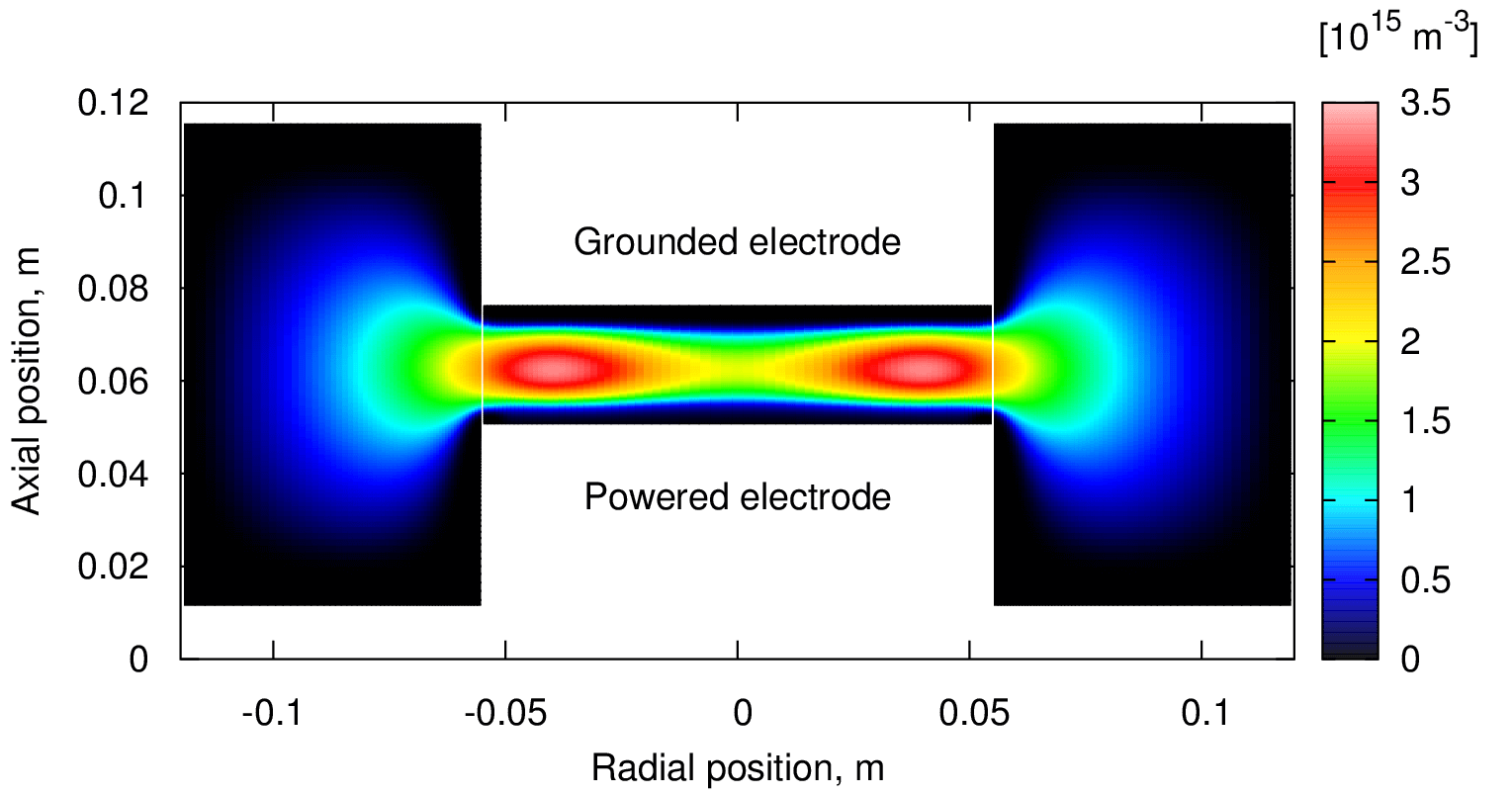
(a)
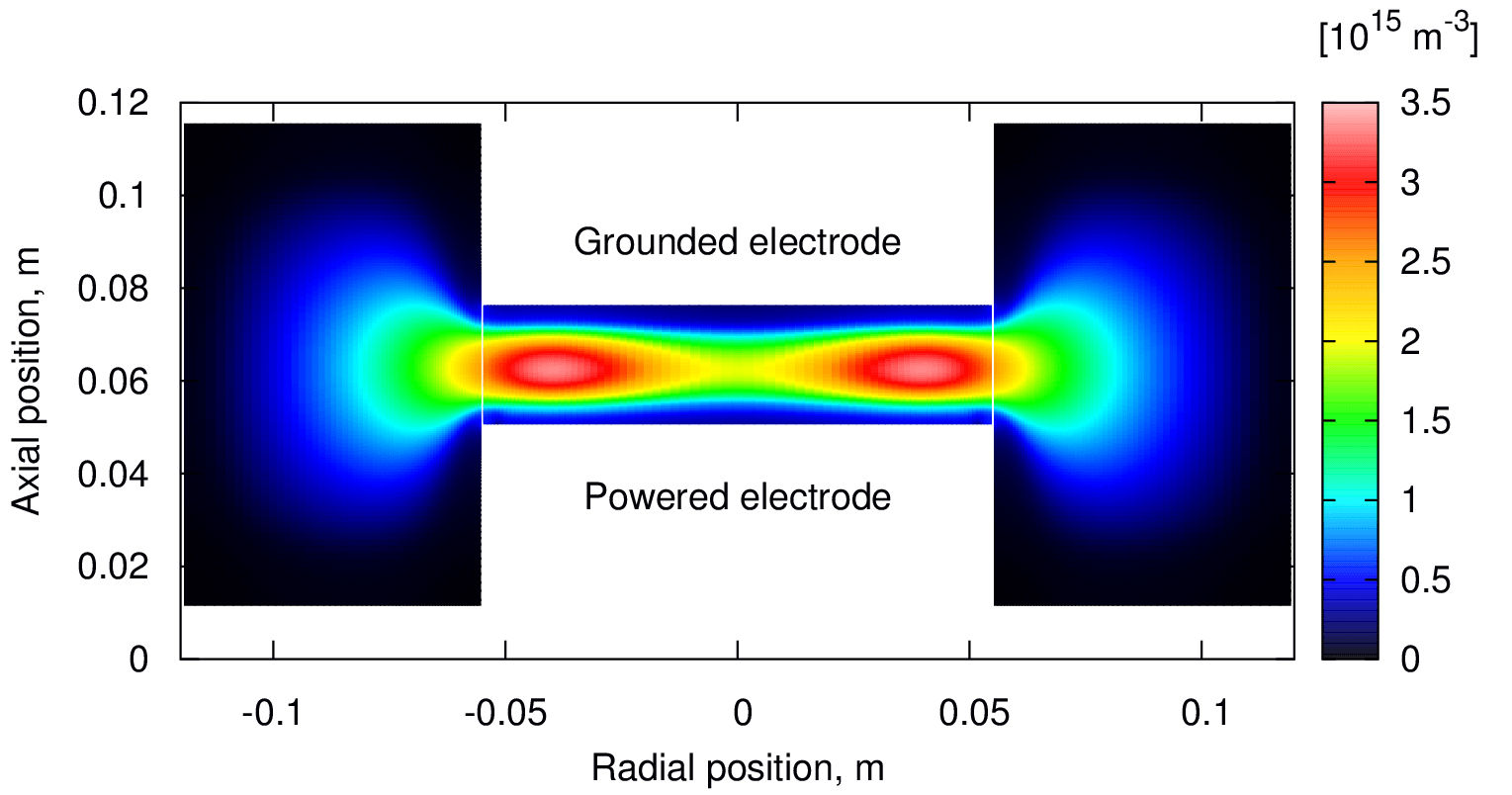
(b)
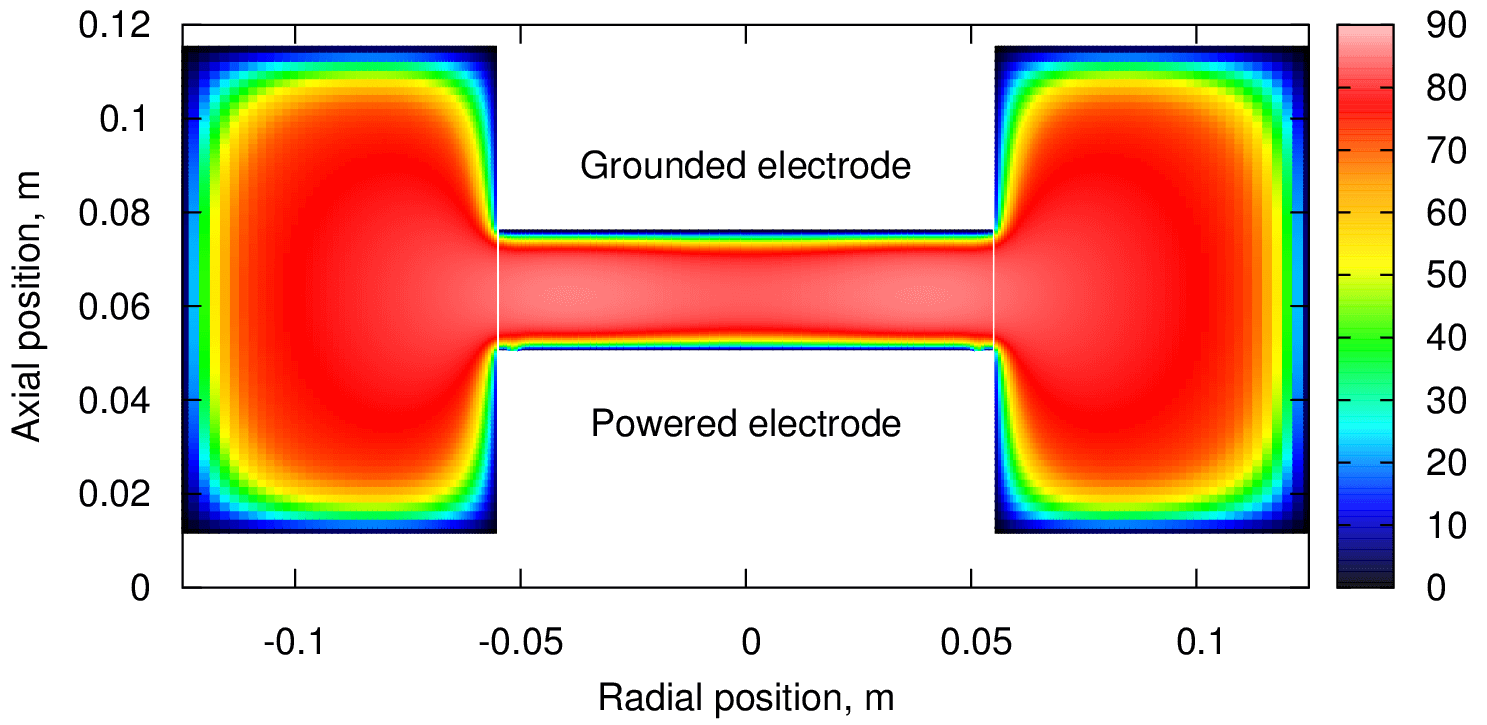
(c)
Figure 1. Time averaged distribution of (a) electron density, (b) ion density and (c) potential. Pure Ar at pressure of 0.1 Torr and applied voltage of 100 V at frequency of 13.56 MHz.
Validation
PLASIMO is validated by comparing results with experimental and modeling data [2,3]. The operating conditions are the same as in figure 1. The experimental values for the ion and electrons differ by a factor of 1.4 due to the different methods used to measure the electron and ion density [2]. The authors state that the two values should act as upper and lower bounds of the actual charge concentration.
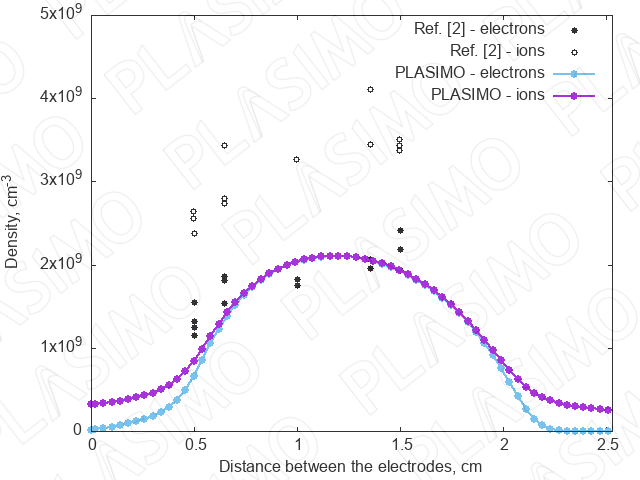
Figure 2. Axial electron density profile at r=0.0 cm.
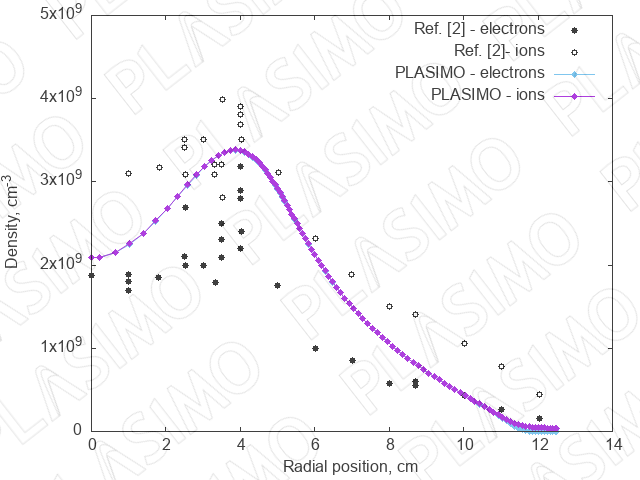
Figure 3. Radial electron density profile at a distance of 1.25 cm from the powered electrode.
Variation of the conditions
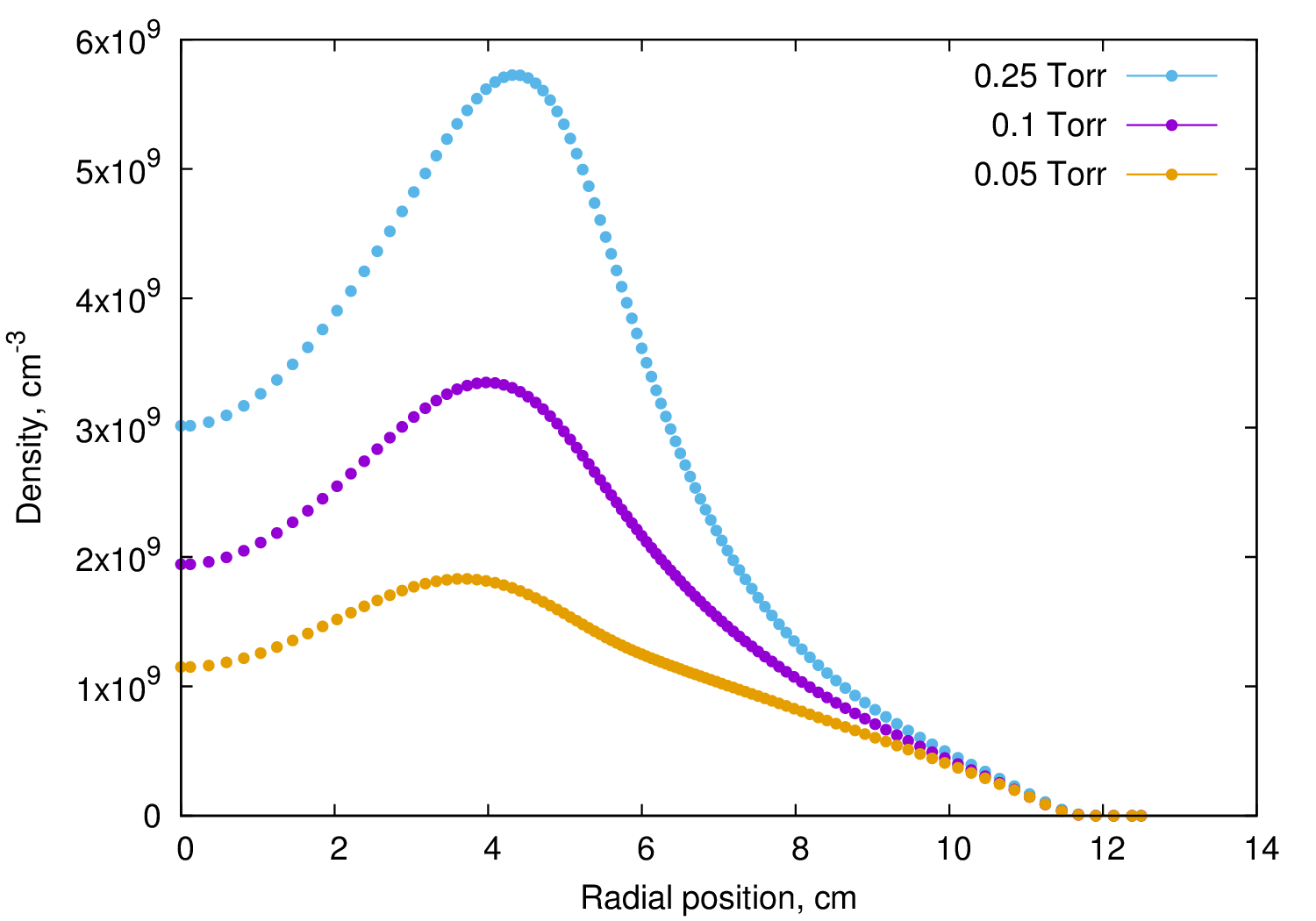
Figure 4. Radial electron density profile at different pressure.
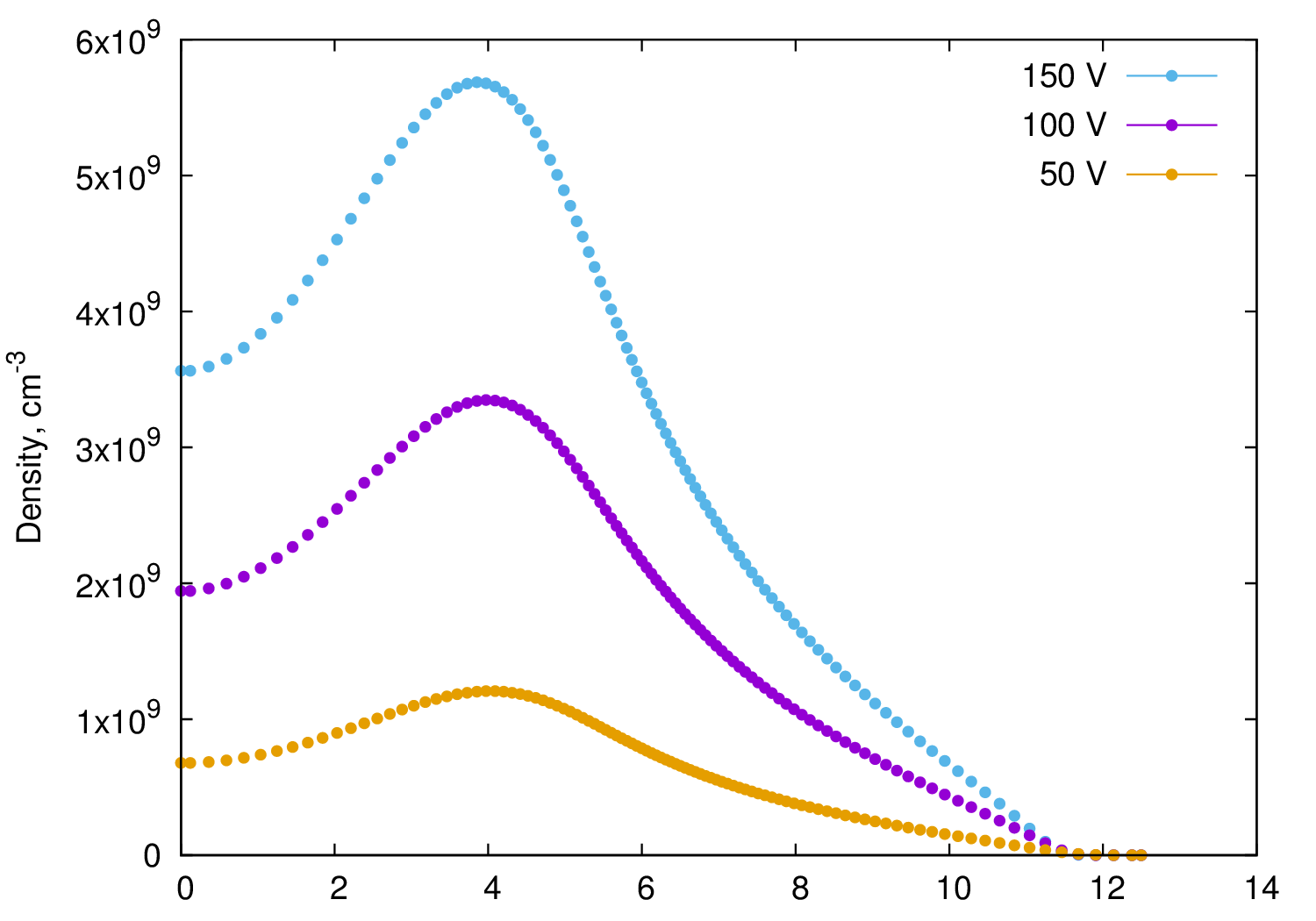
Figure 5. Radial electron density profile at different applied voltage.
References
[1] P. J. Hargis, K. E. Greenberg, P. A. Miller, J. B. Gerardo, J. R. Torczynski, M. E. Riley, G. A. Hebner, J. R. Roberts, J. K. Olthoff, J. R. Whetstone, J. R. Van Brunt, M. A. Sobolewski, H. M. Anderson, M. P. Splichal, J. L. Mock, P. Bletzinger, A. Garscadden, R. A. Gottscho, G. Selwyn, M. Dalvie, J. E. Heidenreich, J. W. Butterbaugh, M. L. Brake, M.L. Passow, J. Pender, A. Lujan, M.E. Elta, D.B. Graves, H.H. Sawin, M.J. Kushner, J. T. Verdeyen, R. Horwath, and T. R. Turner, (1994). The Gaseous Electronics Conference radio-frequency reference cell: A defined parallel-plate radio-frequency system for experimental and theoretical studies of plasma-processing discharges. Rev. Sci. Instr. 65, 140–154.
[2] L. J. Overzet and M. B. Hopkins (1993). Spatial variation in the charge density of argon discharges in the Gaseous Electronic Conference reference reactor. Appl. Phys. Lett. 63, 2484.
[3] J. P. Beouf and L. C. Pitchford (1995). 2D model of a capacitively coupled RF discharge and comparisons with experiments in the GEC reference reactor. Phys. Rev. E, 51, 1376–1390.